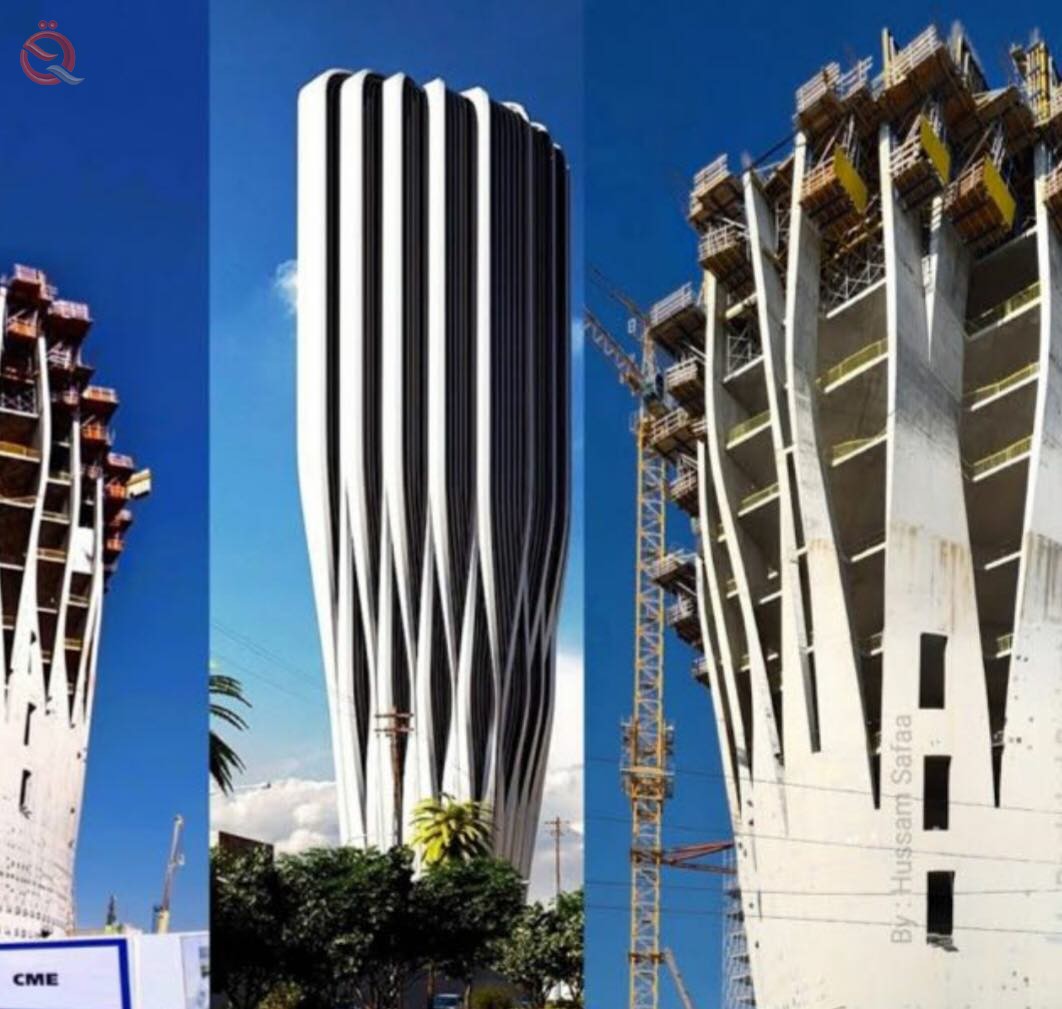Special Sunday posting October 17, 2021 Catch Up
The Second Central Bank Strategy (2021‐2023) An Approach to Monetary and Financial Reform
HEre is the My FX Buddies Podcast for this blog and these are the articles I discussed on the podcast

The Investment Authority reveals a "one way" to finance infrastructure projects in Iraq
The National Investment Commission in Iraq revealed, on Wednesday, that most of the infrastructure projects that were signed are financed by "investment" and not "the general budget", as was the case in the past .
The head of the authority, Suha Al-Najjar, said that "most of the previous infrastructure projects were financed through the budget and from government funds, but today all contracts signed during the current year are financed by investment ."
Al-Najjar added that "the authority grants the investment license to the winning company for the company to finance through its own sources, and therefore the government does not bear any financial expenses for these projects," stressing that "these projects would make a qualitative leap in the service and economic reality of the country ."
Al-Najjar pointed out that "the state signed a series of important contracts this year in the electricity sector through the field of clean energy, including the signing with Total, with Egypt - the UAE and the Norwegian Scatec," noting that "this would preserve crude oil and preserve the environment."
International Investment Companies Compete To Invest In A Civilian Airport In Anbar
link
Adviser To Anbar Governor For Energy Affairs Aziz Khalaf Al-Tarmuz Confirmed Today, Saturday, That Three International Investment Companies Are Competing To Invest In Anbar International Airport In The Western Regions.
In An Interview With Al-Ahd News, Al-Tarmuz Said, "A Group Of Turkish, British And American Investment Companies Are Competing To Establish A Civil Airport In Anbar, In The 35th Area, West Of The City Of Ramadi, As Part Of The Efforts Of The Local Government In Anbar To Move Forward In Establishing A Civil Airport In The 35 Km Area." West Anbar.
He Added That "The Three Companies Are Conducting Intensive Contacts With The Central Government To Invest The Airport, Noting That" The Concerned Authorities Are Studying The Offers Submitted In Order To Know The Most Appropriate Offer That Matches The Specifications Offered By The Local Government To The Investment Companies And Send Them To The Central Government For The Purpose Of Approval.
He Explained That "The Area Allocated For The Airport In The 35 Km Area Has Been Sorted And Prepared By The Local Government, Pending The Commencement Of The Project To Establish A Civil Airport To Transport Passengers And Goods, Noting That" The Civil Aviation Authority Has Agreed To Establish The First Civil Airport In Anbar To Transport Passengers And Goods."
Al-Maliki is moving to form a coalition of 90 deputies to confront Sairoon
Political sources revealed a wide movement in Baghdad by former Prime Minister Nuri al-Maliki, to form a large coalition that includes more than six political blocs, to obtain the mandate to form the next government.
Al-Maliki's movement aims to collect about 90 parliamentary seats by forming an alliance that includes all Shiite forces except for al-Sadr, who close to al-Maliki says he can join to form a consensus government.
The sources pointed out the parliamentary isolation of those who refuse to join the forces of the (Shiite Coordination Framework) headed by al-Maliki, acknowledging the visit of friendly Iranian figures, and others who made phone calls during the past two days, with the aim of bringing the views of the political parties together regarding the election results.olitical sources revealed a wide movement in Baghdad by former Prime Minister Nuri al-Maliki, to form a large coalition that includes more than six political blocs, to obtain the mandate to form the next government.
Al-Maliki's movement aims to collect about 90 parliamentary seats by forming an alliance that includes all Shiite forces except for al-Sadr, who close to al-Maliki says he can join to form a consensus government.
The sources pointed out the parliamentary isolation of those who refuse to join the forces of the (Shiite Coordination Framework) headed by al-Maliki, acknowledging the visit of friendly Iranian figures, and others who made phone calls during the past two days, with the aim of bringing the views of the political parties together regarding the election results.
The caretaker government holds its session headed by Al-Kazemi
Thursday, the Council of Ministers held its regular session, headed by its Prime Minister, Mustafa Al-Kazemi.
The Council said in a statement received / scales News / copy of it, that " the Council of Ministers held its regular meeting chaired by Prime Minister Mustafa Kazemi."
Holds the cabinet weekly regular session under the chairmanship of its President Mustafa Kazemi, to discuss decisions and projects listed on its agenda and vote
The Second Central Bank Strategy (2021‐2023) An Approach to Monetary and Financial Reform

The Central Bank of Iraq launched its second strategy for the years (2021-2023) in conjunction with the economic and financial reform strategy adopted by the government in the white paper. The new strategy has drawn a roadmap with clear objectives and policies for the next three years in a special, complex and risky economic and financial situation.
And the challenges at the level of internal and external economic and financial relations. What concerns us as specialists in economic, financial and banking affairs is what are the new mechanisms and policies adopted by the Central Bank in monetary policy and banking reform in accordance with the approach of fundamental change desired for the national economy contained in the white paper and the second strategy, which constitutes the banking sector The first and basic in the economy and the implementer of monetary policy applications.
The strategy of the Central Bank set the main objectives at 15 objectives and the subsidiary objectives by 75 objectives and charted the way for banking reform in accordance with the following strategic objectives:-
1- Supporting and achieving monetary and financial stability.
2- Enhancing and strengthening the banking sector and financial institutions.
3- Enhancing digital transformation in the central bank and the banking sector.
4- Developing the organizational structure and human resources of the Central Bank.
5- Activating and integrating the internal and external relations of the Central Bank.
Since these strategic goals have been set for a period of three years to achieve the main and subsidiary goals, which emphasize the protection of the financial system, the strengthening of financial inclusion, the management of monetary and financial stability, the development of control and supervision, the development of regulation in the banking sector, and the completion of the development of the monetary structure in the Central Bank and its branches in accordance with work frameworks and techniques authorized in central banks, developing human resources, developing banking operations, strengthening the bank's internal and external relations, and representing it locally and internationally. By analyzing the mechanisms and points of action to achieve the above goals, we note that the strategy identified the planning team, the implementation team, the implementation mechanisms and responsibility, as well as clear priorities for achieving reform. Certainly, these priorities were diagnosed in light of the challenges they face.
Monetary policy and the banking sector due to the suffocating economic and financial crisis that Iraq has suffered for subjective and objective reasons, which can be diagnosed as follows:-
* Work to achieve the objectives of monetary policy, the most important of which is the stability of the exchange rate, the preservation of the purchasing power of the Iraqi dinar, the inflation rate, and the building of a foreign cash reserve.
* Work to restore the confidence of citizens and customers in the Iraqi banking sector.
* Work to increase the percentage of savings for the cash mass in circulation in banks to the percentage of hoarding outside banks, where the percentage of savings in the banking sector does not exceed 20%, and the percentage of hoarding is up to 80%. Increasing the percentage of financial inclusion and the delivery of banking services to the widest spread of the geographical area at the level of governorates and districts aspects, and the increase in banking density in this direction.
* The need to complete the structural and technical foundations of proactive control.
* Activate and reconsider the development of work mechanisms in the Deposit Insurance Company.
* Reconsidering the laws of the legislative environment that regulate banking work.
* Reviewing and evaluating the results of banks' business and re-classifying them by accredited international companies. And to identify weak banks that need the intervention of the Central Bank of Iraq to rehabilitate them, restore their activity and protect them from bankruptcy.
* Demanding government support in accordance with previous decisions and instructions issued by the Council of Ministers, the Economic Affairs Committee and the Ministerial Council for Economy.
* Strengthening and activating the central bank's lending and financing initiatives for small, medium, housing and large projects, in a way that contributes to stimulating the economy, revitalizing the economic cycle and diversifying the resources of the public budget.
* Developing the organizational, technical, and administrative structure of the Central Bank of Iraq and government and private banks, while emphasizing the principles of governance and determining the owners’ intervention in the banks’ executive departments.
Therefore, and for the purpose of applying the banking reform approach, according to what was stated in the strategy, according to an insight into the priorities and challenges that the Iraqi banking sector suffers from, the Central Bank made exceptional efforts during this year 2021, and many goals were achieved from the main and subsidiary goals, and it is trying to complete the achievement of all goals in 2023, which is the last year of the strategy.
Therefore, the strategy of the Central Bank has proven that it established, planned and identified advanced steps on the road to the systematic application of the desired banking reform.
* Economic and banking consultant
Replace damaged coins with new ones

Bank restructuring.. Measures to develop the financial sector
Finance approves a package of procedures for Rafidain Bank
Today, Friday, the Ministry of Finance approved a package of reform measures related to the restructuring of Rafidain Bank, according to the white paper
The ministry said in a statement, received by Alsumaria News, that "the reform package consists of several axes, including: creating a new internal system for the bank that complies with the governance guide issued by the Central Bank of Iraq, in which the board's management is independent of the bank's management, consolidating the independence of its work, and supporting efforts to complete the implementation of The comprehensive banking system, in addition to strengthening and regulating the bank’s relationship with banking service providers
The package of measures included, according to the statement, "reconsidering the bank's policies and procedures and making them more in line with the developments of the modern banking system in order to ensure the provision of the best and quality services by adopting a technical system to facilitate banking operations and carry out banking activities of economic feasibility in various sectors in a manner that serves economic activity and guarantees the rights of depositors and owners interests
The ministry indicated, "Supporting the possibility of transferring the data of the bank's customers whose salaries are localized with the bank and those who received advances and loans from the service provider to the comprehensive banking system
With regard to human resources, the reform package stressed the need to contract with experts and specialists in the banking and financial sector to enhance the aspect of expertise aimed at raising the level of high-quality banking services, in line with the advanced performance of the banking sector worldwide.
The restructuring procedures come, according to Al Bayat, "within the framework of reforms designed to bring the government banking sector into line with the standards of governance of the Central Bank of Iraq.
No comments:
Post a Comment